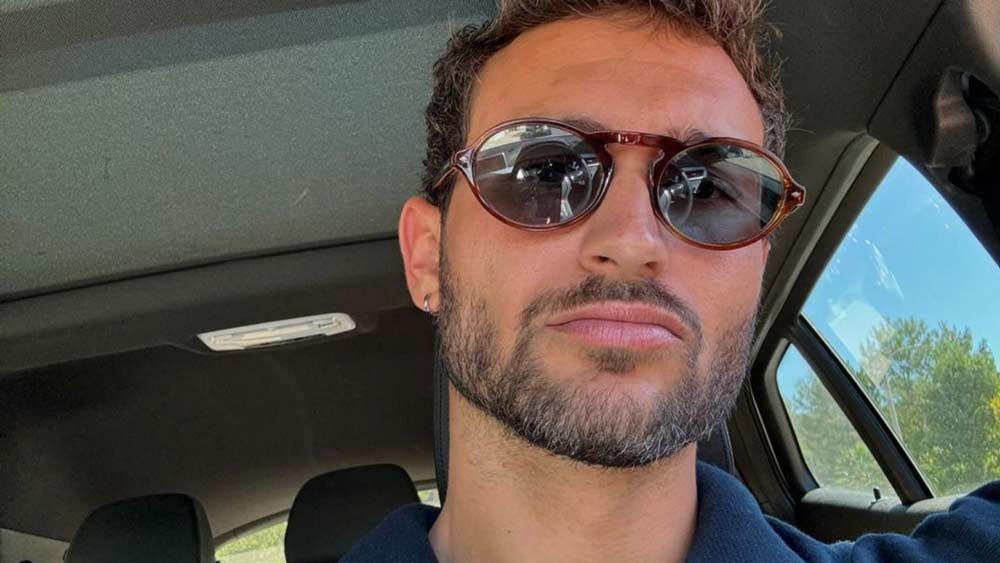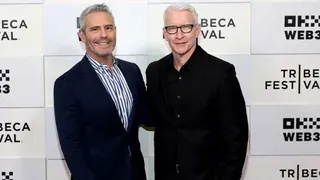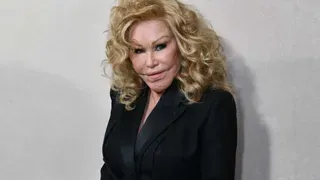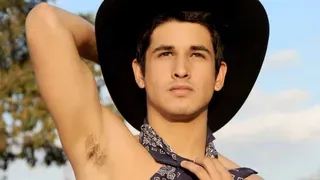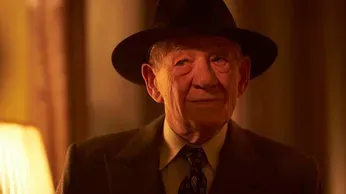
October 4, 2024
Ian McKellen Links His Gay Role in 'The Critic' to Anti-Gay Horrors of the Past
Kilian Melloy READ TIME: 3 MIN.
Sir Ian McKellen is an iconic out actor of enormous talent – but when it came to his latest film role, that of a gay theater critic named Jimmy Erskine living in pre-WWII London, he didn't need to act as much as simply remember a time of hideously anti-gay laws.
"I'm certainly not playing this as any sort of revenge on critics," McKellen told Entertainment Weekly about his character, who, when faced with the loss of his career for being gay, resorts to blackmail and worse. "I related to Jimmy because he's gay and trying to imagine what it would be like to be gay and living such a public life at a time when your very basic nature is criminalized."
"You're inevitably leading two lives," McKellen added, "and if Jimmy eventually behaves appallingly, well, the law has behaved appallingly against him, hasn't it? Consciously or not, he's taking revenge."
Threatened by England's home-grown fascists at a time when Hitler and Mussolini are rising to prominence, and swept up by police in one of the frequent raids carried out against LGBTQ+ people, Jimmy has plenty of reason for bitterness. But he also shows a sweet side, befriending a struggling actress played by Gemma Arterton – only to betray her in turn.
If Jimmy sounds like a character that's too impossibly villainous to play, think again: McKellen, at the age of 85, was living in England before those barbarous laws of the past were finally repealed. It was only in 1967 that being gay was, in theory, decriminalized – but, as British equality advocate Peter Tatchell has noted, while at that time "homosexuality only partly decriminalized... the remaining anti-gay laws were policed more aggressively than before by a state that opposed gay acceptance and equality." Tatchell argues that true decriminalization did not happen in the UK until 2013.
"I can remember those times," the "Lord of the Rings" actor told EW about the days when queer people were persecuted under the law. "I had friends who were sent to prison for making love, so I didn't have to do any research" for his role in "The Critic."
"It was all inside myself, just waiting to be brought to the surface," the "X-Men" star added of Erskine's rage and terror. "When I was playing Jimmy, as is often the case when you play someone who behaves appallingly like Richard II or Macbeth, judging the character isn't very helpful when you're inhabiting the part. I see the film and I think 'Good God, what a dreadful man.' But it didn't feel like that when I was playing him. I thought he was just getting on with his life."
McKellen's perspective was echoed by "The Critic" director Anand Tucker in an interview with EDGE.
"Jimmy Erskine and Ian McKellen, for the majority of their lives, have had to hide who they truly are because [being gay was] fucking illegal. You could lose everything in a heartbeat and be thrown in prison, or worse," Tucker noted. "Jimmy's great thing is truth: Truth in art, be true to yourself. And yet, somehow, he has to do all of that while hiding who he really is."
Tucker recalled how McKellen, in an interview after his trailblazing emergence from the closet, spoke to how enriching it was for his art to embrace authenticity.
"Since coming out in 1988, McKellen has been a trailblazer for LGBTQ+ rights, championing many social movements and organizations across the world," EW said. "These days, with gay marriage legalized in the United States and most other Western countries, the days of criminalization can seem far behind us."
They're anything but, as those who keep up with current events know. With Republican lawmakers in states across America breaking records in recent years through the sheer number of anti-LGBTQ+ bills that have been proposed in state legislatures, and with the looming specter of Project 2025 – a playbook for a second Trump administration that details how queer people and their allies will be marginalized and even potentially criminalized – the bad old days seem only one election away from roaring back.
Kilian Melloy serves as EDGE Media Network's Associate Arts Editor and Staff Contributor. His professional memberships include the National Lesbian & Gay Journalists Association, the Boston Online Film Critics Association, The Gay and Lesbian Entertainment Critics Association, and the Boston Theater Critics Association's Elliot Norton Awards Committee.
